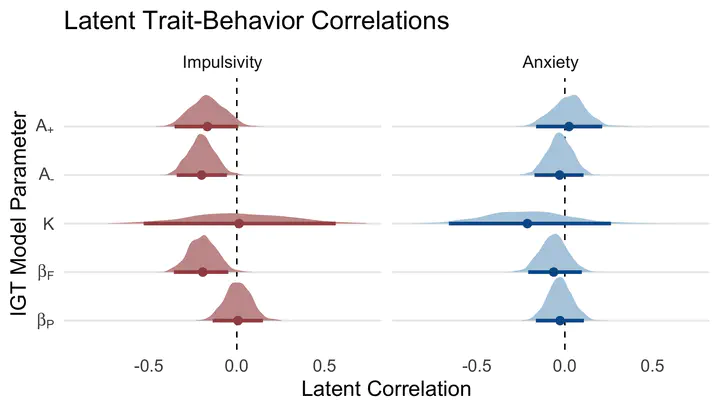The Role of Reward and Punishment Learning in Externalizing Adolescents: A Joint Generative Model of Traits and Behavior

Abstract
Reinforcement learning is hypothesized to play a strong role in the development and maintenance of externalizing psychopathology across the lifespan. For children with the hyperactive-impulsive presentation of Attention-Deficit/Hyperactivity Disorder (ADHD-HI), blunted sensitivity to reward is thought to produce subjective states of irritability and negative affect, which evoke excessive approach behaviors that function to downregulate negative affect. Blunted sensitivity to punishment is thought to produce impaired extinction/reversal learning of previously reinforced action-outcome contingencies, in addition to a general lack of risk aversion. Combined, blunted reward and punishment sensitivity can potentiate aggressive and antisocial behaviors, setting a developmental course for Oppositional Defiant Disorder, Conduct Disorder, Substance Use Disorders, and Antisocial Personality Disorder. In the current study, we examine the relationships between (1) cognitive mechanisms underlying reinforcement learning on a passive avoidance paradigm, and (2) trait measures of externalizing and internalizing psychopathology, within a sample consisting of control adolescents (n=66), and those diagnosed with externalizing (n=134) and/or internalizing (n=74) disorders (comorbid n=67). We use a computational model of passive avoidance learning behavior, and a multidimensional item response theory model of self-report responses to develop a joint, generative model spanning all levels of observed data. Generative modeling allowed us to estimate person-specific parameters from behavioral data that correspond to key theoretical mechanisms (i.e. reward and punishment sensitivity), and then infer relationships between these and latent externalizing and internalizing traits while accounting for measurement error that would otherwise attenuate such individual difference correlations. We found a negative association between trait impulsivity and reward learning rate, punishment learning rate, and reward frequency sensitivity. We also identified interactions between externalizing and internalizing traits that can potentiate or protect against certain forms of impulsive and anxious behaviors and symptoms.